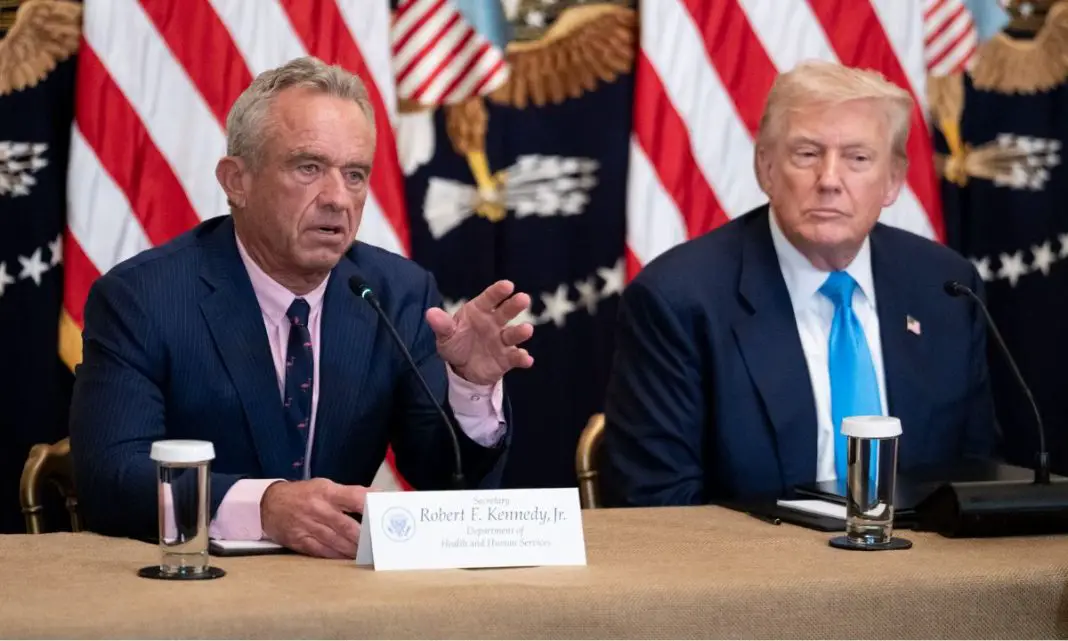Vaccine safety is an issue that should be able to unify Americans no matter what side of the political aisle they’re on. Across the political spectrum, from those who champion individual liberty to those who advocate for equitable healthcare, there’s a universal desire to ensure that vaccines are both safe and effective.
This shared goal transcends ideology, as no parent, regardless of their politics, wants their child exposed to unnecessary risks, and no expectant mother should face uncertainty about the safety of medical interventions. The recent ban by the Trump administration on thimerosal, a mercury-based preservative, from all U.S. vaccines marks a monumental step toward aligning public health policy with this common-sense principle.
This reform is a testament to what’s possible when evidence and advocacy are combined. For too long, skepticism about vaccine safety has been met with dismissal or politicization, eroding trust in institutions meant to protect U.S. citizens. By confronting these concerns directly, the thimerosal ban offers a path to rebuild confidence in the healthcare system. This is not a debate about the importance of vaccines but a demand that they meet the highest standards of safety, a goal that many Americans can agree on.
Thimerosal Banned from U.S. Vaccines
On Saturday, Robert F. Kennedy Jr., a steadfast advocate for vaccine safety, announced a landmark achievement: the complete elimination of thimerosal, a mercury-based preservative, from all vaccines in the United States. In a compelling video statement, Kennedy revealed that this compound, still used in flu shots given to children and pregnant women, has been officially banned, marking a significant win for public health.
“I’m proud to finally deliver on a long-overdue promise: protecting our most vulnerable from unnecessary mercury exposure,” Kennedy shared on X. For more than two decades, he has campaigned to remove thimerosal, a compound primarily composed of ethylmercury, from vaccines. Despite its role as a preservative in multi-dose vials, Kennedy criticized federal health agencies for allowing its continued use in flu shots, even as evidence mounted about its potential harm.
The Science Driving the Change
Kennedy pointed to a body of peer-reviewed studies and official government records that label thimerosal as a neurotoxin, carcinogen, mutagen, and reproductive toxicant. “The amount of ethylmercury in the flu shot that CDC just banned under my order is 25,000 times the EPA’s safety level for drinking water,” he emphasized, highlighting the compound’s alarming potency. A 2001 congressional testimony by FDA official William Egan revealed a startling oversight: thimerosal’s safety had never been tested in humans. Later studies, including a 2017 CDC-funded analysis, linked flu shots during pregnancy to a 7.7 times higher chance of miscarriage within 28 days. A 2017 JAMA study also reported an increased risk of autism spectrum disorders in kids whose mothers got a flu shot in the first trimester of their pregnancy.
“Why were we injecting this toxin into babies and pregnant women?” Kennedy asked pointedly. He noted that federal and state regulations classify expired thimerosal-containing vaccines as hazardous waste, raising serious questions about why such a substance was ever considered safe for injection into the human body.
Overcoming Opposition
Kennedy’s decades-long battle faced relentless pushback from pharmaceutical giants and their media allies, who frequently labeled him an “anti-vaxxer.” He countered this accusation with sharp wit: “I’ve spent 20 years trying to get mercury out of vaccines. I spent four years trying to get mercury out of fish, and nobody called me anti-fish.” His perseverance bore fruit with the CDC’s June recommendation, formally enacted last week, to eliminate thimerosal from all vaccines. Kennedy assured the public that mercury-free, single-dose flu shots remain readily available, with manufacturers confirming their ability to meet demand without relying on toxic chemicals.
A Global Challenge
The reform’s impact reaches beyond U.S. borders, as Kennedy called on international health organizations to take similar action. “We urge the World Health Organization and GAVI to stop their programs of injecting mercury into more than 100 million Black and brown babies in developing countries annually,” he declared.
This plea comes amid heightened scrutiny of global vaccine initiatives, particularly following the Gates Foundation’s recent $1.6 billion commitment to GAVI. Bill Gates, a prominent vaccine advocate, has criticized U.S. foreign aid reductions spearheaded by Elon Musk’s Department of Government Efficiency, claiming they will lead to “millions of more deaths.” Kennedy’s push for mercury-free vaccines worldwide challenges these programs to prioritize safety alongside access.
Kennedy cast the thimerosal ban as the first step in a larger movement to bring back public trust in federal health agencies. He praised President Trump’s leadership in “remaking FDA and CDC” into institutions that serve the public’s interests. “This decision sends a clear message,” Kennedy stated. “The days of ignoring the science are over. The days of putting profits ahead of people are over.”
Do you agree with RFK Jr.’s ban on mercury in vaccines? As always, let us know your thoughts by commenting down below!

